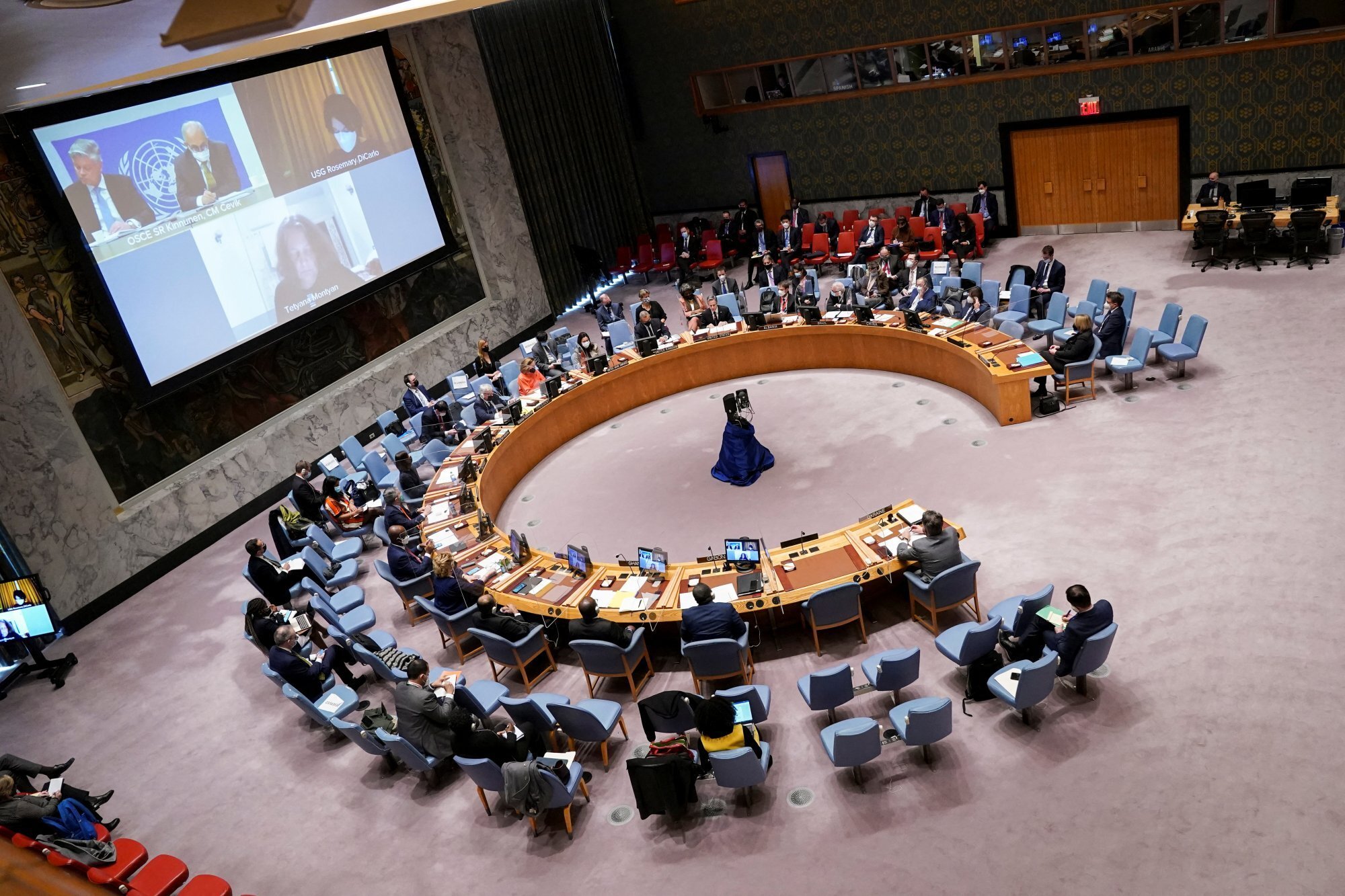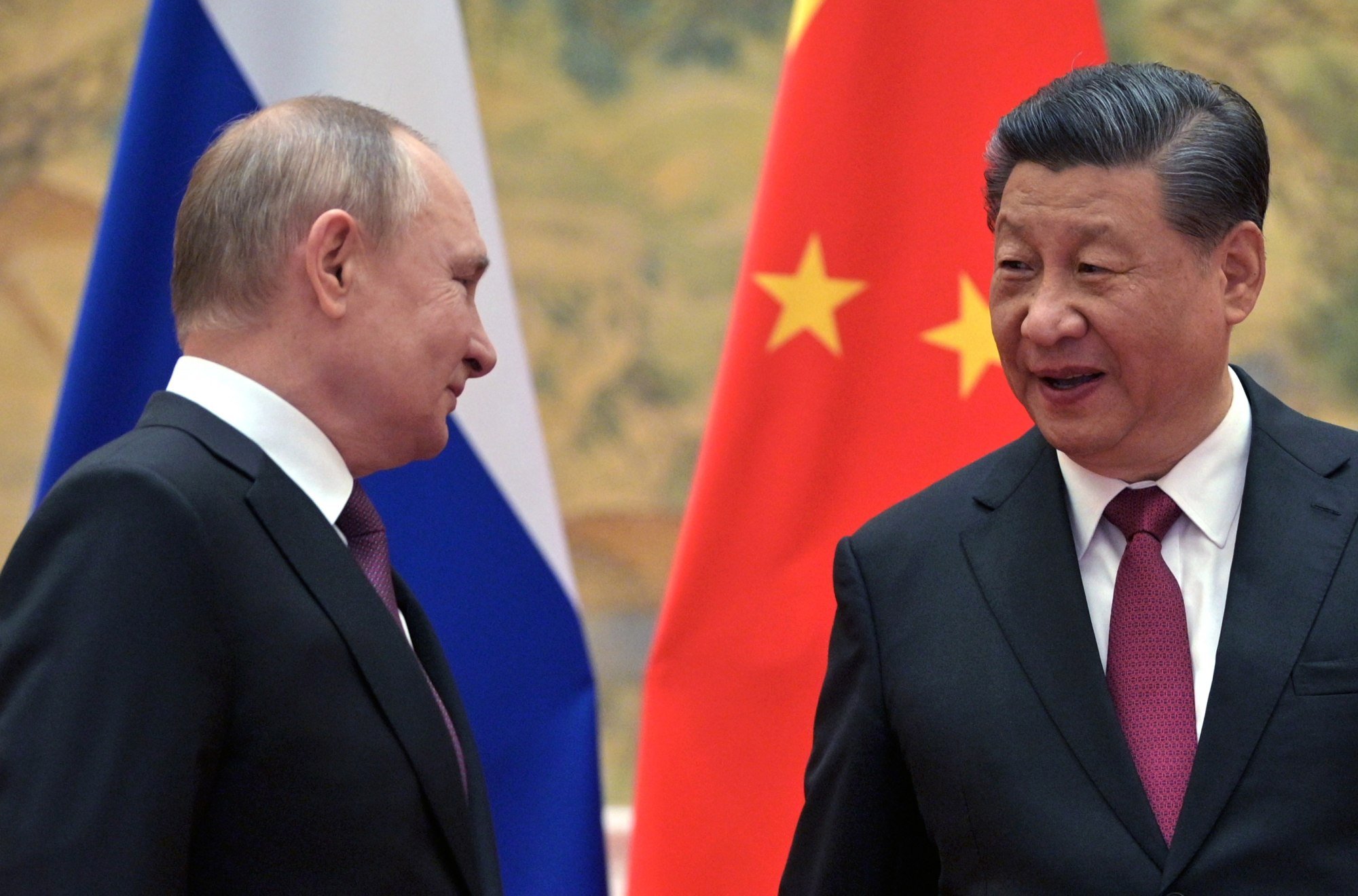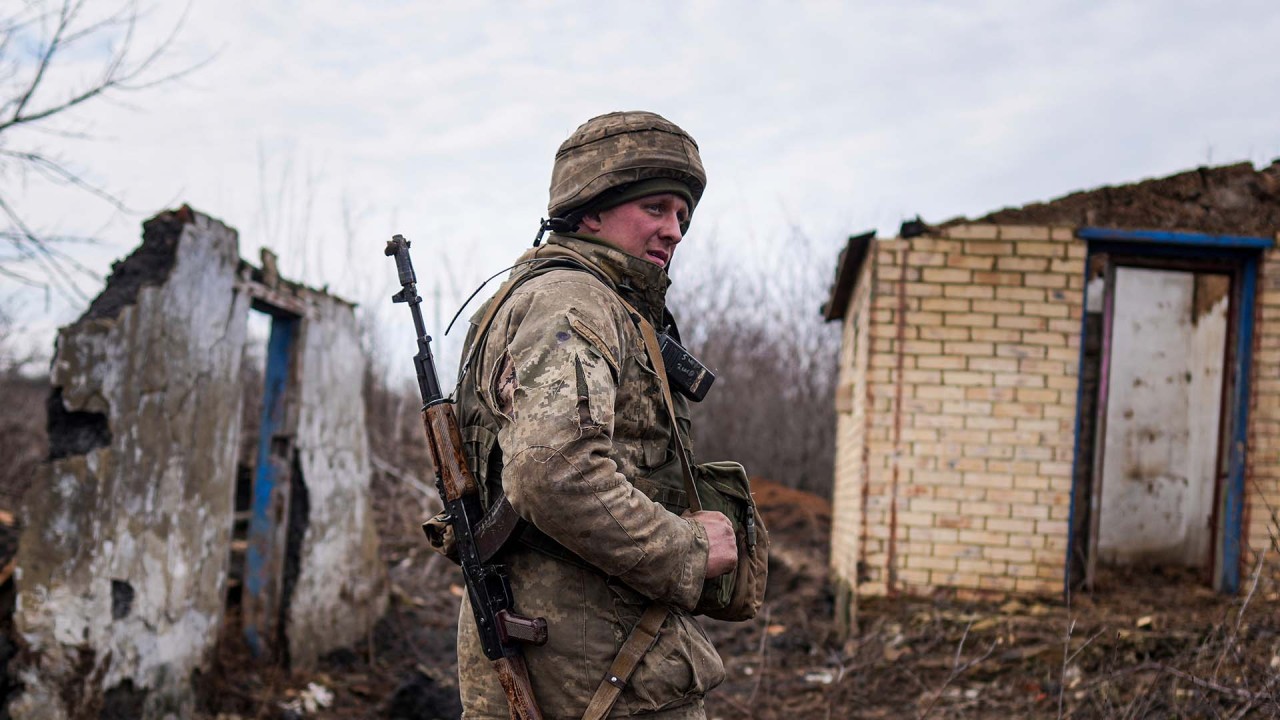
Ukraine-Russia crisis: China benefits if the US pivots back to Europe, but it won’t want full-blown war – and would rather Taiwan doesn’t get mentioned
- With Putin’s moves likely to hold the West’s attention for years yet, US attempts to contain China will take the back seat and Beijing will gain room to manoeuvre
- But Beijing’s top foreign priority is a stable environment to develop its economy. Meanwhile, comparisons to Taiwan’s situation are the last thing it wants
As one Chinese saying goes, no matter how much one plans things out, life always intervenes.

No doubt, the unfolding crisis has added a new dynamic to China’s tortuous relations with the US and its Western allies.
As the crisis is set to consume the attention of Washington and Brussels and other capitals of the world for the next few years, it is very likely that their united front pressure against China will ease.
Of course, it is naive to think that Washington’s focus on Russia would lead to any fundamental shift in its relationship with Beijing, like it did more than 20 years ago. That ship has already sailed as confronting China was one of the few things that united the politicians in Washington before the Ukraine crisis.
Russia’s Ukraine attack and the limits of China’s foreign policy
But Beijing will certainly gain more room to manoeuvre and more geopolitical benefits if the conflict over Ukraine persists.
But Washington’s miscalculations have pushed Moscow and Beijing into a closer bond.

But it turns out there are limits. China has stopped short of supporting Russia’s moves on Ukraine and senior officials including Foreign Minister Wang Yi have called for more diplomacy and negotiations to reduce tensions.
But on Wednesday, Hua Chunying, the foreign ministry spokesperson, minced no words in accusing the US of creating fear and panic and talking up the threat of war and expressing opposition to new sanctions imposed on Russia.
Ukraine crisis leaves Asian economies facing ‘disastrous’ price rises
From a Chinese perspective, with the Ukraine situation threatening to get out of hand, Washington’s priority will shift to Eastern Europe from its Indo-Pacific strategy which is aimed at containing China. That is clearly in Beijing’s favour.
It is very unlikely that Washington and its Western allies will have the time and resources to confront Beijing and Moscow at the same time.
So it is expected to do a delicate dance to secure more diplomatic leverage, backing Moscow’s security interests while at the same time trying to avoid antagonising Washington too much.
Meanwhile, Chinese officials are clearly uncomfortable with discussions at home and abroad about the link between Ukraine and Taiwan.
From Beijing’s point of view, there is no comparison between the two situations as Ukraine is a sovereign country while Taiwan is considered a province of China and is not recognised by the international community except for a handful of small countries.
Beijing has two concerns.
Some Chinese analysts are worried that the pro-independence movement in Taiwan could take advantage of the Ukraine crisis to bring its agenda to international attention.
Why India isn’t joining other US allies in condemning Russia over Ukraine
Secondly, they are also concerned that the crisis will prod the nationalistic elements on the Chinese mainland to influence the national discourse and pressure the Chinese government to get tougher on Taiwan by learning from and emulating some of Russia’s tactics in relation to Taiwan.
But Beijing has its own plans for Taiwan, with which it says it will reunite through peaceful means or by force if necessary.
Making the island a hot international issue under the current circumstances is the last thing Beijing wants.
Wang Xiangwei is a former editor-in-chief of the South China Morning Post. He is now based in Beijing as editorial adviser to the paper


